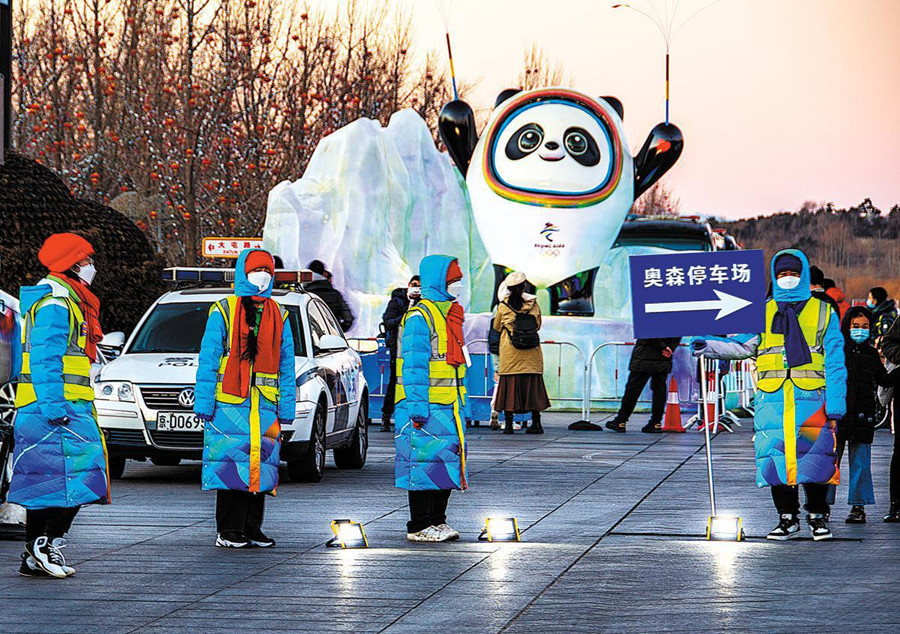Beijing improves services to curb virus spread during Games

Photo shows Beijing 2022's dedicated volunteers on hand at venues to provide translation and information services, assist people with disabilities and handle any emergencies. [Photo/Xinhua]
Beijing has refined its services in terms of medical care, disinfection, transportation and accommodation to reduce the risk of COVID-19 spread during the 2022 Winter Olympic Games, officials said on Wednesday.
Meng Rui, deputy head of the capital's Chaoyang district government, said that thousands of medical workers and 10 disease control and prevention experts has been dispatched to venues, public transportation stations and hotels attached to the Olympics.
Chaoyang contains three competition venues — the National Indoor Stadium, the National Speed Skating Oval and the National Aquatics Center.
The medical workers are responsible for conducting nucleic acid tests and managing the health of Games athletes, staff and attendees, Meng told a news conference hosted by the 2022 Beijing Media Center.
Chaoyang has opened a green channel to funnel in anti-epidemic materials for purchase at the Olympic venues. A mechanism for clearing and transporting medical waste has also been designed.
Additionally, the district has equipped venues with robots that can perform widespread disinfection. In the speed skating venue, monitoring systems that can detect coronavirus strains in the air are being used in warm-up areas and locker rooms daily.
"The facilities have improved their ability to monitor for the virus and provide early warnings of potential outbreaks," Meng said.
As for transportation, the district has set up a parking lot specifically designated for athletes.
For the opening ceremony on Feb 4, the district cooperated with a navigation company to establish security checkpoints on roads to guide about 37,500 participants into the Bird's Nest, formally known as the National Stadium, Meng said.
"The measures prevent outsiders who are going the wrong way from breaching closed-loop management protocols," he said.
On Jan 4, the Games organizing committee launched the closed-loop management system for all participants to prevent an epidemic.
"We will continue to strengthen epidemic prevention inspection during the Olympics. We will remind people working in shops, canteens, drinking water areas and other crowded places to keep a safe distance and wear masks," he said.
Huang Keying, deputy Party chief of Beijing's Yanqing district, said the district's nucleic acid testing covers all people involved in the Games.
Yanqing, which is hosting the alpine skiing events, conducts nucleic acid tests for people in the closed loop once a day, and once every two days for those from outside the loop, Huang said.
"We will take strict measures promptly once any case is found according to the provisions of the epidemic prevention manual," she said.
"In the quarantine hotel, we provide language services, meals and fitness equipment for international personnel and athletes. Feedback showed that our services have won the understanding of quarantine people," she said.
Copyright © The National Committee of the Chinese People's Political Consultative Conference.
All rights reserved. Presented by China Daily.
京ICP备08100501号-1

